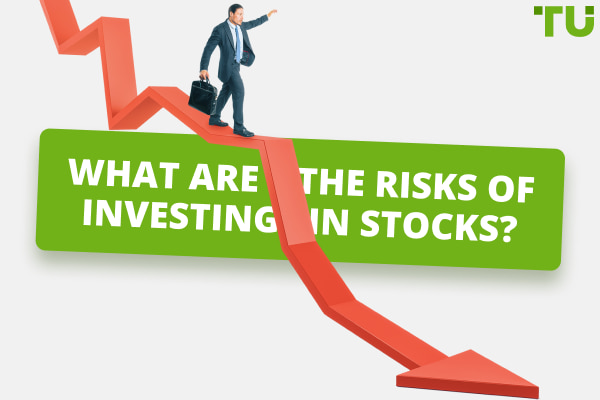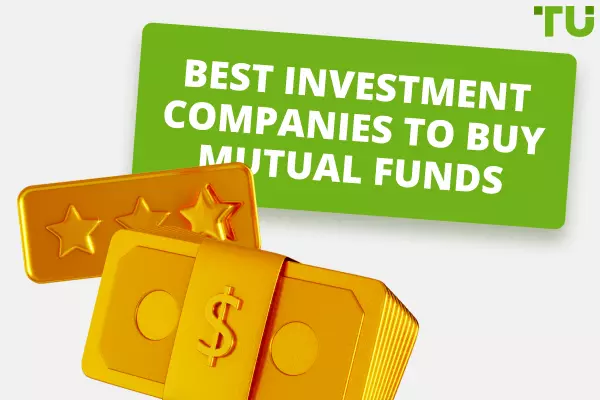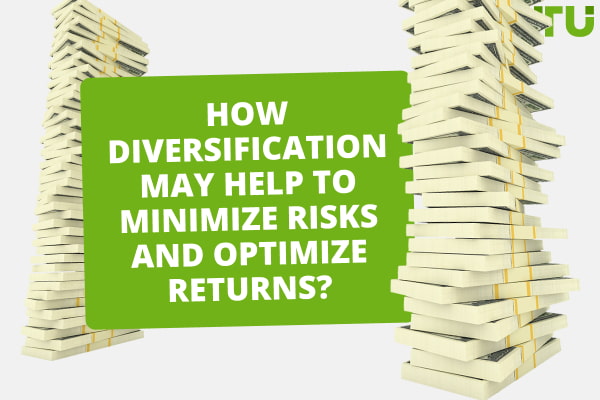stocks;
Securities Fraud: How to Spot and Avoid Cheaters
Financial market fraud, unfortunately, remains an urgent problem. Securities fraud is one of the most popular ways to illegally obtain investor’s funds. Fraudulent companies manipulate securities and their quotations, thus luring money from clients who decide to invest in them.
There are several deceptive schemes. In order not to face securities fraud, you need to know how to protect yourself from possible fraudsters. In this article, the experts at Traders Union will analyze securities fraud cases, and find out how not to fall for the many scams of cybercriminals.
Definition of securities fraud
To understand the topic, you need to find out what securities are and what is securities fraud. Let’s talk about this briefly.
Definition of Securities
A security is a document that certifies the ownership of property rights in something.
In trading, clients may work with the following types of securities:
-
1
-
2
government bonds;
-
3
bonds of private companies.
Securities are one of the main instruments for both short-term trading and long-term investments. Stocks and bonds have a certain value that changes all the time. Therefore, traders make money on price changes.
What is securities fraud?
It is also important to understand what is securities fraud. These are fraudulent activities carried out by brokers or securities companies. The essence of the fraud is either provision of unsubstantiated securities or artificial price manipulation. Once a sufficient number of traders buy securities, their value can plummet, clients will lose money, and fraudsters will earn a lot.
Securities fraud is popular because fraudsters can apply this scheme many times. As a rule, it is difficult for law enforcement officers to find and detain malefactors. Both the FBI and the law enforcement agencies of other countries are engaged in such cases, but it is not always possible to see justice done. Therefore, the most effective measure of protection is your attentiveness and careful analysis of each project in which you intend to invest.
Main schemes of Securities Fraud
There are a lot of fraudulent schemes with securities. They depend only on the imagination of the malefactor. Some types of fraud are common, others are rare. Let’s consider the securities fraud cases that traders encounter most often.
Pyramid scheme
Pyramids are a common fraudulent scheme in the financial markets. The long and short of the matter is that the promised return on investment is paid to clients by new clients, who are attracted by the investors themselves.
This type of securities fraud is quite simple:
-
The promoter offers clients investments in securities. At the same time, he promises high profitability. As a rule, clients do not have access to the investment valuation of securities; they have to take the representatives’ word for it. For example, consider the case of investing 1000 USD at 20% per month.
-
Pyramid promoters offer a very profitable referral program. This may be an offer to buy securities for partners with a certain percentage of the profit paid to the referral’s account. Typically, such offers include many levels. As an example, we will give a three-level program, where for partners of the 1st level you get 10%; the 2nd level gets 5%; and the 3rd level gets a 2% bonus.
-
Clients, using the referral program, attract new clients, thus increasing their payments. For example, a client invited two users and they invested 1000 USD each.
-
A month later, the pyramid pays out income. In this example, this is 1000 USD + 20% = 1200 USD. Plus payments from the referral program for each invited user – 10% of 1000 USD for two clients – this is another 200 USD. The total is 1400 USD. After receiving the income, users usually reinvest the amount into the platform.
-
After the influx of new clients stops, the company ceases to exist. There are no more payments to the clients. Thus, the fraudster gets the maximum profit from the largest number of clients, and the defrauded investors are left without money.
The matter is that the influx of users here is provided by the users themselves. That is why this scheme is called a “pyramid” because the highest level is the narrowest. The lower the level is, correspondingly the more users it has.
Ponzi scheme
One of the most popular securities fraud cases is the so-called Ponzi scheme. In fact, it is a kind of pyramid scheme. The Ponzi scheme differs from the pyramid scheme in one very important aspect – it is centralized. In this case, a promoter or a group of promoters is involved in attracting clients.
Pump and Dump
Pump and Dump is another common security fraud scheme. This scheme consists of speculative boosting of quotations, which leads to increased buyers’ attention.
The scheme works like this:
-
Securities of an unknown company are listed on the stock exchanges.
The emission can be different – both large and limited. Often scammers choose the second option, it’s easier to boost the price;
-
Boosting.
To make it happen, as a rule, they use false information. For example, it can be big news with huge sales figures or expert articles describing a fantastic prospect for investing in securities;
-
Users who believe the information begin to massively buy securities.
Due to the increased demand, the cost begins to rise. At the same time, it is growing at an abnormal rate. Seeing the rapid rise in prices, other users begin to open purchase transactions, hoping to make a massive profit, which affects the quotations even more.
-
After the strong buying trend dies down, the demand for the asset decreases.
Growth slows down. Further, the verification of information begins, and it is not confirmed. Quotations crash and people who have invested in securities start losing their money.
The rise in asset value with Pump and Dump can be very large. For example, they can rise in price by 50% in just a few days. After the collapse of the price of securities, traders are left without money, and the company in charge of emission may receive millions of dollars.
Advance fee frauds
Advance fee frauds is a type of securities fraud, which is aimed at a small profit for fraudsters, but it is growing due to the large-scale involvement.
The scheme, in this case, looks like this:
-
The fraudster invites clients to buy securities. These can be both fake assets and real ones such as stocks or bonds of world giants. As a rule, in this case, cybercriminals offer their clients a profit that is much higher than the real one.
-
To make it happen, as a rule, they use false information. For example, it can be big news with huge sales figures or expert articles describing a fantastic prospect for investing in securities;
-
After the client sends the funds, the fraudster stops communicating.
The scheme is aimed at inexperienced traders who do not know about the rules for paying commissions and mandatory payments. The more people they attract, the more income they get. For example, if the fees are set at 100 USD and 100 traders are attracted, the fraudster will receive 10,000 USD.
Securities fraud example: The Jordan Belfort scheme
Jordan Belfort’s fraud has become famous all over the world. It became so famous that the film “The Wolf of Wall Street” was based on it. The Belfort fraud is a classic example of the Ponzi scheme, which has been artfully implemented by people with tremendous persuasive talents.

Belfort founded Stratton Oakmont in 1989. The name of the company was bought under the franchise of Stratton Securities, an investment fund for institutional investors, which by that time had been in operation for more than 10 years and had a good reputation. This helped to increase the credibility of the Belfort company.
Employees of the company were looking for companies of wealthy people who could potentially become investors. At the same time, they traded Penny stocks – stocks that cost no more than 5 USD. Belfort and his staff persuaded people to invest in stocks and declared that these stocks would soon go up in price. All staff received special training. They were trained by Jordan himself. Initially, the text was read from a piece of paper, but they read it with a certain intonation. Investors believed and bought securities in large lots, which generated huge profits.
The regulatory authorities paid attention to Stratton Oakmont at the end of 1989, but it was only in 1998 that it became possible to prove the fraud. Belfort was sentenced to 22 months in prison and ordered to return USD 110 million to investors. However, so far only USD 11.6 million has been paid out.
How to escape securities fraud: top 5 tips step guide
It’s not an easy task to escape securities fraud. It requires special care from the trader. Here are five tips to help you avoid losing funds due to fraud.
A simple license check will protect against pyramids
This check is necessary to avoid cooperation with illegal companies. As a rule, scammers do not bother obtaining licenses from reputable regulators. It is very difficult and very expensive.
Reliable regulators are:
-

USA – SEC;
-

Great Britain – FCA;
-

Cyprus – CySec;
-

United Arab Emirates – DFSA (Dubai) or FRSA (Abu Dabi);
-

Australia – ASIC;
-

Japan – JFSA and KLFB;
-

Germany – BaFin, etc.
If the broker or investment platform has a license from a reliable regulator – it can be trusted. If there is an offshore license, the service must be treated with caution. If the broker or investment platform is not licensed or provides a “certificate” from a private company instead, cooperation with it is extremely risky.
Scheme transparency
An important factor that helps to protect against fraud is checking the transparency of the cooperation scheme with a broker or an investment platform.
Before you start working with a company, you need to check the following points:
-
if the list of assets the platform will invest in is known;
-
whether the client will get access to securities;
-
if the scheme for generating income and payments to users is disclosed
If a company promises income from investments in securities, but at the same time does not disclose details and does not tell where the funds will be invested and how the money can be withdrawn, most likely you are dealing with fraudsters. Therefore, be sure to check all internal documents and descriptions of investment schemes. Investigations into the promoters should also be conducted. Seek detailed statistics on what assets a particular promoter works with and how successful he is, etc.
Check information on securities
In the Pump and Dump scheme, the scammers are looking to evoke emotions in people and make them buy securities while being emotional. Therefore, you might come across all types of provocations. In order not to face such problems, you have to carefully check all readily available information.
If some outstanding financial success is reported, you need to check this information on the company’s website. Issuers publish financial statements. If an expert predicts tremendous success for a certain company, look for information about this organization.
Be careful with people who make “tempting offers”
Ponzi scheme fraudsters actively seek victims for their machinations. They take contact information from free sources, such as investment site profiles. They communicate through social networks, email, and phone calls. They use aggressive marketing, often write to your email and call you directly. They actively persuade potential clients to take part in their project and promise everything under the sun.
All information should always be treated critically! Reputable brokers and investment companies neither write to people directly nor offer their services. They are promoted through advertisements. Be sure to check any information provided to you.
Read the reviews
Before investing in any securities or cooperating with brokers, investment platforms, etc., you should check the reviews on their activities. Clients of companies actively leave feedback on the activities of such organizations to alert other clients. If you see a lot of negativity about projects or do not find reviews at all, this is a reason to be wary.
But check reviews on the companies only on independent platforms. You will not find unbiased opinions on the websites of brokers and investment platforms who are acting dishonestly. If you want to get objective reviews, use the specialized sites. For example, on Traders Union you will find a large number of reviews about various organizations, both legitimate and illegitimate.
Trustable Brokers rating
Before investing in securities, you need to choose the right broker. The company must be trustable, with all necessary licenses and a good reputation. Traders Union has selected five brokers for you that we consider meet all the investment requirements.
| Broker | ZuluTrad | DupliTrad |
|---|---|---|
US Stocks and options |
USA |
|
Forex |
Great Britain, Cyprus, South Africa, the Bahamas |
|
International Markets |
USA, Great Britain, Australia, Canada, Japan, Hong Kong, Singapore, India |
|
Crypto and Social Trading |
Cyprus, Great Britain, Australia |
|
European Market |
Great Britain, UAE (Dubai), Hong Kong, Malta, Singapore |
Webull — best For US Stocks and Options
Webull is a broker oriented directly at US clients. The company has its SEC license No. 8-69978. The broker is also a partner of FINRA and SIPC, as well as the largest US stock exchanges NYSE, NASDAQ, and CBOE EDGX. Webull is a member of the Deposit Guarantee Fund.
Compensations can be as follows:
-
for transactions with securities – up to 500,000 USD;
-
for transactions on Forex – up to 250,000 USD.
Webull provides clients with the ability to trade stocks and ETFs. Options are also available. There are real cryptocurrencies. Trading is carried out in the terminal of the broker’s own development. The company offers clients a favorable commission policy. Trading in stocks, ETFs, and options are carried out without commissions. Clients can take advantage of the trading advice provided by the broker.
FxPro — Best For Forex
The broker has been providing services to clients since 2006. FxPro operates in over 170 countries worldwide.
The activity of the broker is regulated by four licenses:
-
Great Britain – FCA No.509956
-
Cyprus – CySEC No.078/07;
-
South Africa – FSCA No.45052;
-
The Bahamas – SCB SIA-F184.
FxPro offers clients trading in the proprietary trading terminal, FxPro Trading. There are also regular platforms MetaTrader 4, MetaTrader 5, and cTrader. The clients of the company can trade both in manual and automatic modes using trading advisors.
The broker offers clients trading with more than 200 trading instruments – currency pairs and CFDs. The company also offers futures trading. On FxPro, users can trade on margin with a maximum leverage of up to 1:500.
Interactive Brokers - best For International Markets
Interactive Brokers is one of the oldest global brokers. The company has been providing brokerage services since 1978 and has the following licenses for financial activities:
-
USA – SEC CIK No.0000922792;
-
Great Britain – FCA No.208159;
-
Australia – ASIC AFSL No.453554;
-
Canada – IIROC 08-0111;
-
Hong Kong – SEHK No.AEX264;
-
Japan – KLFB No.187
-
Singapore – MAS No.CMS100917
-
India – SEBI No.INZ000217730.
Also, the broker is a partner of world exchanges. For example, Interactive Brokers partners with the US NYSE. The company is a member of the deposit guarantee funds. Thus, for operations with securities in the USA, clients can claim a refund of up to 500,000 USD, and traders from the UK – up to 85,000 GBP.
Interactive Brokers offers clients stock trading in 78 global markets. The company has over 60,000 bonds and over 13,000 ETFs are available. Traders can also work with futures and options. The company offers clients 105 currency pairs on Forex.
Interactive Brokers trades on the IBKR proprietary terminal. In addition to the huge number of assets, the company provides other opportunities for traders. There is an API here, and you can use the services of a portfolio analyst.
eToro — Best for Crypto and Social Trading
eToro has been providing trader services since 2007. Since its opening, the broker has received more than 20 awards.
The company operates under three licenses from reputable financial regulators:
-
Great Britain – FCA No.583263;
-
Cyprus – CySec No.109/10;
-
Australia – ASIC AFSL No.491139.
The company is a member of the deposit guarantee funds. UK clients can get refunds up to 85,000 GBP, and EU traders up to 20,000 EUR.
The broker was originally developed as a securities trading company. Trading stocks on eToro is commission-free. In total, the broker provides access to 2000+ stocks. There are also 47 currency pairs, 145 ETFs, and over 2,200 CFDs available for trading.
The main feature of eToro is that the broker is the world’s largest social trading and copy trading platform. The platform unites over 135,000 traders from 140 countries of the world. The company uses a trading terminal of its own design.
Swissquote - Best for European Market
Swissquote is a broker owned by the Swiss banking group Swissquote Group Holding SA. The company has been operating since 1996 and operates under the license of the UK regulator FCA No. 562170. Swissquote is also regulated in Dubai, Hong Kong, Malta, and Singapore. The company is listed on the SIX Swiss Exchange. Clients of the broker can read its financial statements, and the website also lists the data for all members of its board.
The company provides clients with the opportunity to work with securities, including stocks and bonds, in 60 financial markets. Fourteen hundred ETFs and 340 mutual funds are available to traders. In addition, clients can trade Forex, CFDs, futures, and options. The broker’s clients can trade on the MetaTrader 4 and MetaTrader 5 trading terminals. There is also an Advanced Trader platform.
Expert review
Securities fraud is a common occurrence in financial markets. In such cases, it is very difficult to find the scammers and prove their guilt. And scammers use this situation to their benefit and arrange frauds frequently using the same scheme, changing only the brand. The schemes can be different – from large-scale frauds to small frauds with a large number of clients.
Only your vigilance can prevent you from being victimized by fraud. You have to check each project you intend to invest in. Before buying securities, you need to analyze and assess their prospects. In no case should you open a trade if the trend is growing up quickly without any obvious reason for such a movement. This is a case when you can lose much more than you earn.
Also, be sure to read reviews of companies and platforms before investing. If you are the victim of such actions, please leave your review. Traders Union invites everyone to express their opinion on projects and tell their story. So you will help other traders not to fall into the trap, and not to sponsor fraudsters.

Antony Robertson,
Traders Union Financial Analyst
Securities fraud Reviews
I gained invaluable experience in working with a financial pyramid when, at the beginning of my investment activity, I agreed to a colleague’s “tempting offer”. I considered him an experienced investor and agreed to invest in the platform. I was actively recommended to attract friends and receive bonuses for this. The first time I got paid, I lost my guard and reinvested. Then the pyramid collapsed, and I lost all my money. This story taught me not to believe in fairy tales, and to approach such offers critically.

Darcy Dowman, 57
Investor
New York
I almost got taken in by a Ponzi scheme. One day a certain person called me, introduced himself as a financial expert, and recommended investing money in a new platform. I refused, but he continued to call. After a while, they began to contact me through social networks. This went on for about a month, after which everything stopped abruptly. I asked about the project, and it turned out that it was a scam. Good that I chose not to take the risk.

James Gustman, 46
Banker
Boston
I lost money on the machinations of a broker. I started working with an unverified broker who began to actively promote the shares of a certain company. Out of inexperience, I trusted the broker and did not think that they were trying to deceive me. I bought shares that cost me a lot of money but it turned out it was a pump and dump. The company whose securities were promoted was a small offshore company.

Ronda Fane, 25
Florist
Manchester
FAQ
Is it possible to get money back in a case of securities fraud?
It is almost impossible. To do this, you need to find fraudsters, go to court, and prove the validity of your claims. Fraudsters often take care of safety measures by adding clauses to the Terms and Conditions about the possible blocking of accounts or the refusal to allow the withdrawal of funds without explanation. It is difficult to prove anything in these situations.
I get phone calls from people who introduce themselves as employees of famous companies. Should I believe them?
By no means. This is a common scam and ploy. If they called you and introduced themselves as employees of a popular broker, contact the broker’s technical support service and find out if the company’s representatives are actually making calls with such offers.
Are frauds possible with reputable brokers?
It is highly unlikely. First, it is very difficult, time-consuming, and expensive to obtain a license from a reputable regulator. Brokers value their reputation and license. Second, brokers provide access to exchanges where, in most cases, shares of verified companies are traded. There may be pump and dump fraud, but this does not depend on the broker, but on the issuer who placed the securities.
Are sharp spikes in trend always pump and dump?
No. Volatility in the stock market can occur for various reasons. The main sign of pump and dump is the emotional growth of quotations against the background of false or impossible-to-verify information. If the volatility is justified, and there are prospects for growth, you can consider buying such securities (if this does not go beyond your trading strategy).
Team that worked on the article
Alamin Morshed is a contributor at Traders Union. He specializes in writing articles for businesses who want to improve their Google search rankings to compete with their competition.
Over the past four years, Alamin has been working independently and through online employment platforms such as Upwork and Fiverr, and also contributing to some reputable blogs. His goal is to balance informative content and provide an entertaining read to his readers.
His motto is: I can dream or I can do—I choose action.
Ivan is a financial expert and analyst specializing in Forex, crypto, and stock trading. He prefers conservative trading strategies with low and medium risks, as well as medium-term and long-term investments. He has been working with financial markets for 8 years. Ivan prepares text materials for novice traders. He specializes in reviews and assessment of brokers, analyzing their reliability, trading conditions, and features.
Mirjan Hipolito is a journalist and news editor at Traders Union. She is an expert crypto writer with five years of experience in the financial markets. Her specialties are daily market news, price predictions, and Initial Coin Offerings (ICO). Mirjan is a cryptocurrency and stock trader. This deep understanding of the finance sector allows her to create informative and engaging content that helps readers easily navigate the complexities of the crypto world.




















